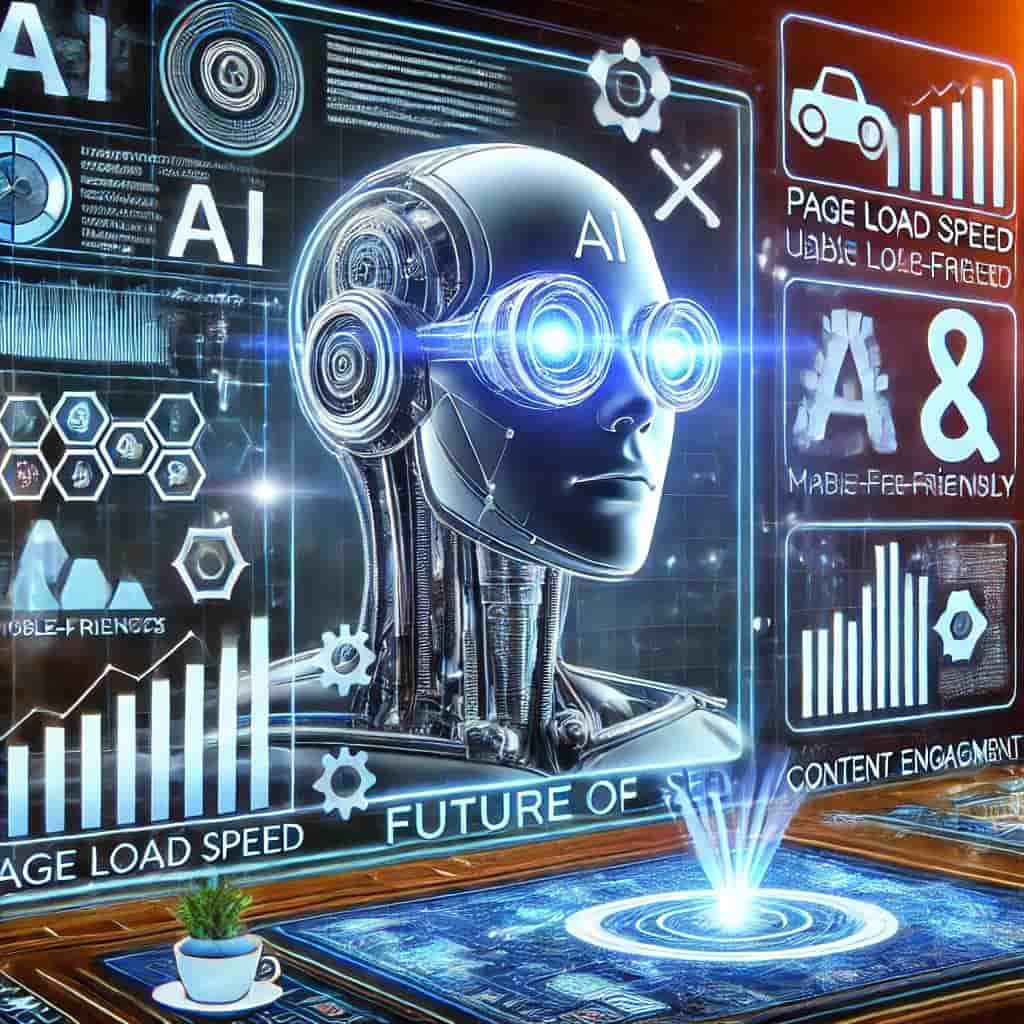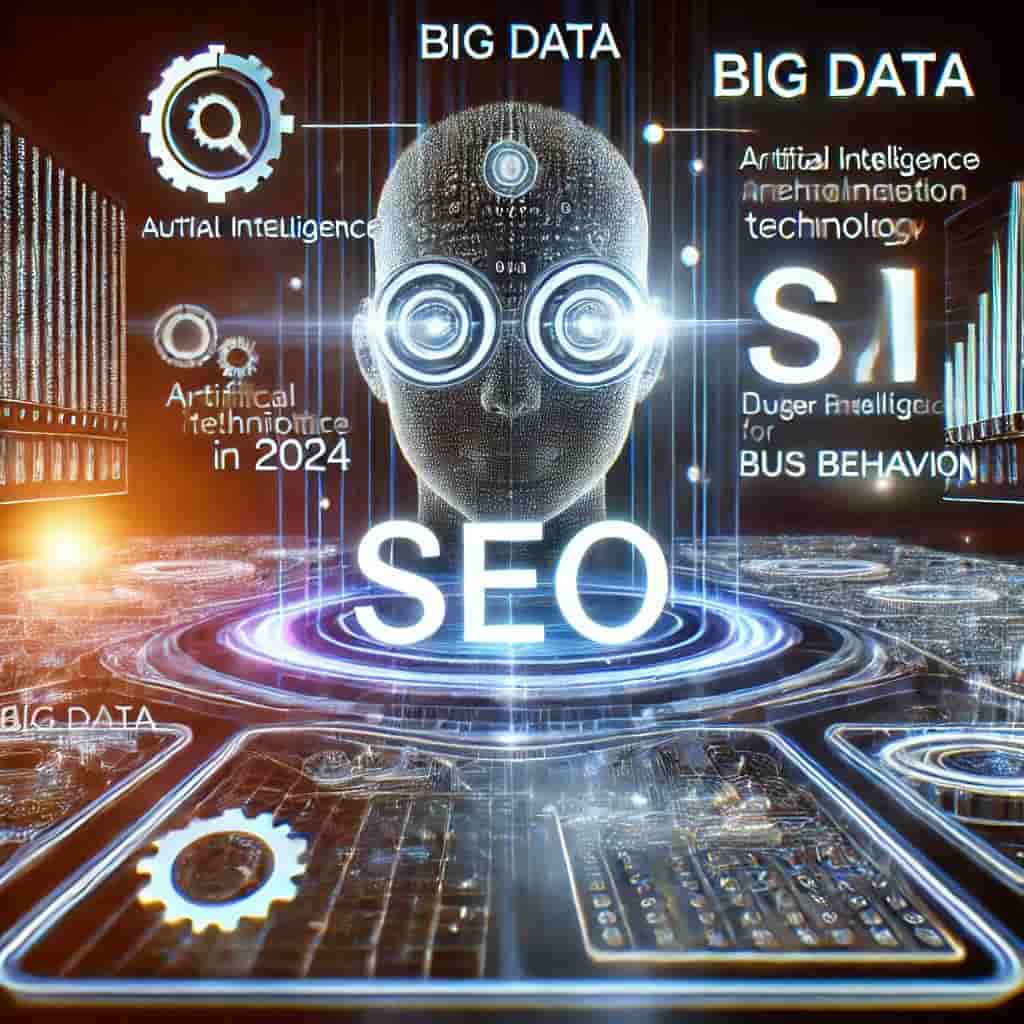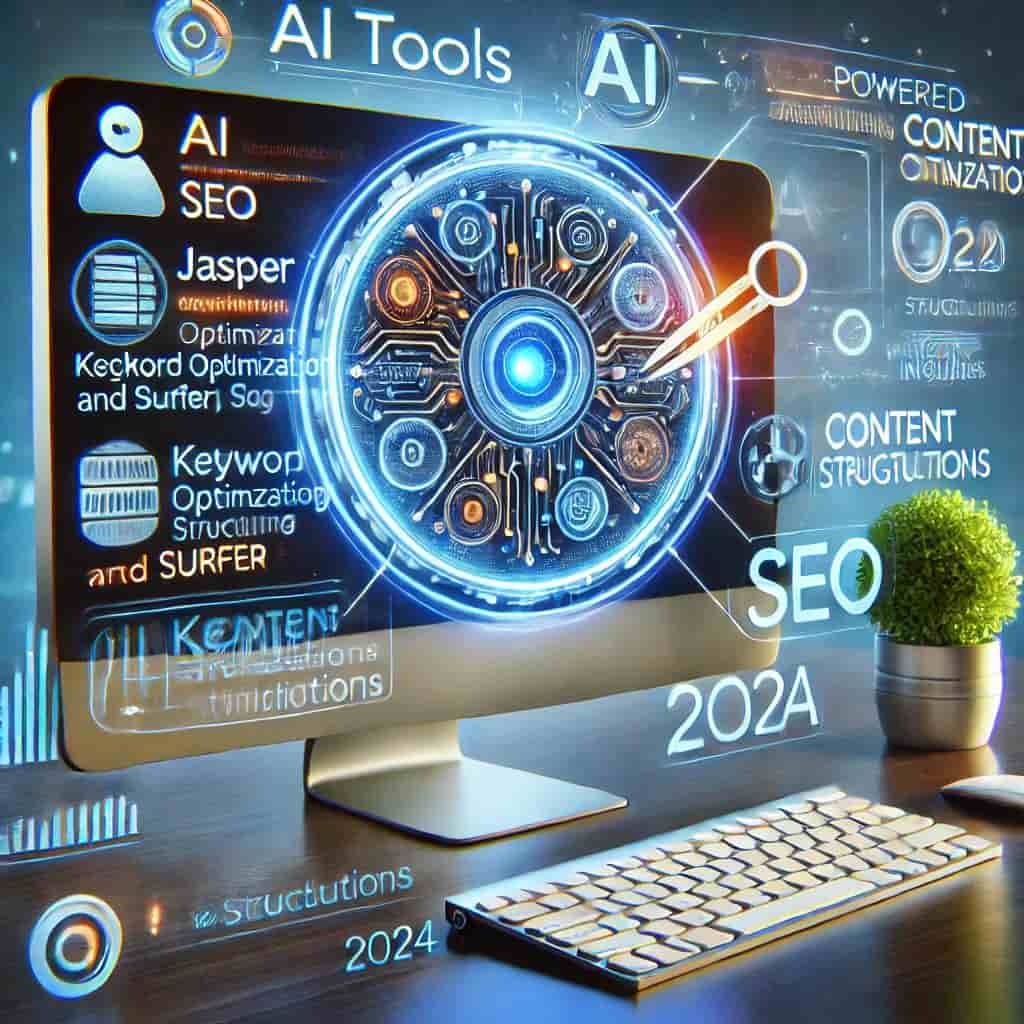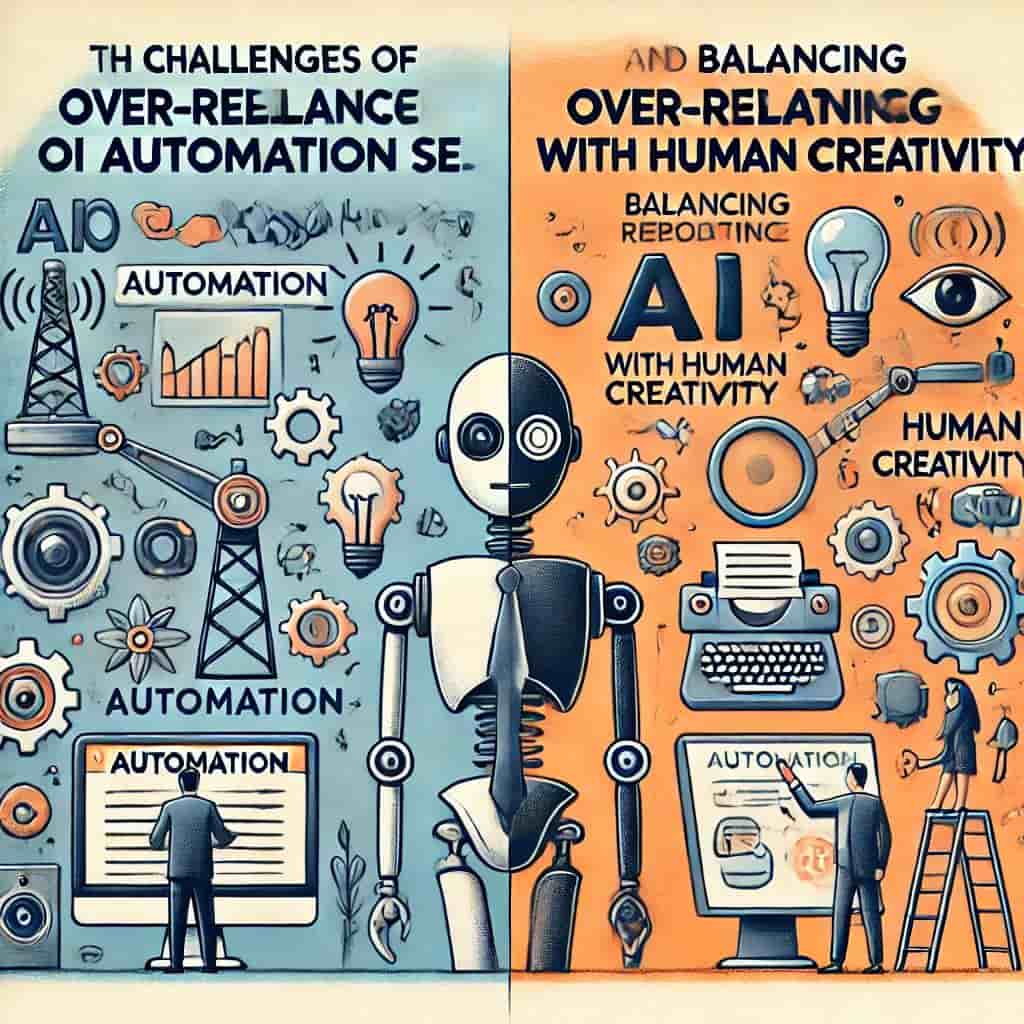The Impact of Artificial Intelligence on SEO Strategies in 2024
Introduction
In recent years, artificial intelligence (AI) has become a pivotal technology, transforming various sectors, including digital marketing and SEO. As we step into 2024, AI’s role in shaping SEO strategies has reached new heights. From analyzing big data to enhancing user experiences, AI tools are redefining how we approach search engine optimization. This article dives deep into the impact of AI on SEO, exploring key advancements, practical tools, potential challenges, and future directions for marketers and businesses aiming to leverage AI in their SEO strategies.

1. AI in Big Data Analysis for SEO
One of the biggest advantages AI brings to SEO is its ability to analyze and process massive amounts of data with unprecedented speed and accuracy. In a digital world where users leave behind extensive data trails, AI can quickly identify patterns, track behavior, and interpret user intent. This kind of deep analysis is invaluable for SEO professionals, as it allows them to create more personalized and targeted strategies.
- User Behavior and Intent Analysis
AI-powered algorithms can analyze search queries and understand the intent behind them, whether informational, navigational, or transactional. For example, AI can detect when a user’s search is driven by a desire to learn, to buy, or to find a specific location. By understanding these intentions, businesses can tailor their content to meet specific user needs, increasing the likelihood of attracting and engaging the right audience. - Content Personalization
AI enables SEO professionals to deliver personalized content to users. By analyzing user behavior, interests, and previous interactions, AI can help marketers create dynamic content that adjusts based on the user’s profile. For example, a user interested in digital marketing may be shown articles focused on SEO trends, while another user interested in analytics might see content tailored to data tools. - Keyword Targeting
AI can streamline the keyword research process by identifying emerging keywords that competitors may not have discovered yet. With the help of machine learning, SEO experts can go beyond traditional keyword research to uncover long-tail keywords and trending topics that drive highly relevant traffic.

2. Innovative AI Tools for SEO
In 2024, a variety of AI tools have emerged, helping SEO professionals achieve new levels of efficiency and accuracy. Here are a few of the top tools that are shaping SEO today:
- Jasper
Jasper is an AI-powered content creation tool that helps writers generate high-quality, SEO-friendly content. It can be used to create blog posts, product descriptions, and even entire marketing campaigns. By analyzing high-ranking content on the web, Jasper generates suggestions that help writers match or exceed the quality of competitors. - Surfer SEO
Surfer SEO combines AI with data analytics to help users optimize content for better rankings. Surfer SEO’s Content Editor tool analyzes top-ranking pages for a specific keyword and provides suggestions for structure, word count, and even the frequency of certain terms. This makes it easy for content creators to align their work with what search engines consider relevant. - Frase
Frase is another AI tool that assists with content creation by generating topic outlines, suggesting related questions, and recommending keywords. It’s particularly useful for content strategy, helping users identify gaps in their content that can be filled with new articles or updated information.
Each of these tools brings unique capabilities, allowing SEO professionals to work faster and more strategically. For example, using Surfer SEO, an SEO expert can optimize an article for multiple keywords in less than an hour, saving significant time while ensuring relevance.
3. Challenges of Using AI in SEO
While AI provides substantial advantages, it also introduces challenges that SEO professionals need to navigate carefully.
- Over-Reliance on Automation
One potential downside of AI in SEO is the risk of becoming overly reliant on automated processes. Although AI tools are powerful, they can’t replace the creativity and critical thinking that humans bring to content creation. Depending too much on automation might result in content that is overly generic or lacks a unique perspective, which can fail to engage audiences. - Balancing AI with Human Input
SEO content that lacks a human touch can feel impersonal or robotic, which can be off-putting to readers. To counter this, SEO professionals should view AI as a supportive tool rather than a replacement. By using AI to handle data-heavy tasks and providing the human touch in areas like storytelling and brand voice, marketers can create content that resonates with users on a personal level. - Ethical and Transparency Concerns
AI-generated content can raise ethical issues, especially if it’s not clearly identified as such. There is growing concern among users and regulators about transparency in AI-generated content, with discussions about potential guidelines to ensure readers know when they’re interacting with AI-based material. Maintaining transparency and adhering to ethical guidelines is essential to build trust with audiences.

4. The Future of SEO with AI
As we look ahead, AI’s role in SEO is expected to expand even further, and businesses will need to adapt to these shifts to stay competitive. Here are some predictions for the future of AI in SEO and tips for preparation:
- SEO Algorithms Will Rely More on User Experience (UX)
Google and other search engines are increasingly prioritizing user experience as a ranking factor, and AI is at the heart of this transformation. With advancements in machine learning, SEO algorithms can now interpret user engagement signals such as dwell time, bounce rate, and click-through rate more accurately. This means that content quality, website speed, and mobile-friendliness will become even more crucial for ranking. - Content Generation Will Become More Sophisticated
AI-generated content will continue to improve in quality, eventually reaching levels that are indistinguishable from human-written content. This will open new opportunities for SEO, as AI could create dynamic content that changes based on real-time data and user interactions. However, content creators will still need to ensure originality, as search engines may penalize sites that rely on duplicate or overly formulaic AI-generated material. - The Rise of AI Summaries in SERPs
Google’s AI-driven summaries, which provide concise answers directly in search results, are expected to become more prevalent. To optimize for these, SEO professionals should create content that is structured to answer specific questions concisely, with well-organized headers and bulleted points where relevant. Structuring content to be “snippet-friendly” can increase visibility and drive more traffic. - Integration with Voice Search
With the proliferation of voice-activated devices, SEO strategies will increasingly focus on conversational keywords and question-based queries. AI can help optimize content for voice search by analyzing natural language patterns. For instance, a voice search query may differ from a typed one, such as “What’s the best SEO strategy in 2024?” versus “best SEO strategy 2024.” By understanding these differences, AI can help marketers adjust their content to capture voice search traffic effectively.
Practical Tips for Adapting to AI-Driven SEO Changes
- Invest in AI Tools that Complement Your Needs: Choose tools that align with your specific SEO goals, whether that’s content optimization, link building, or keyword analysis.
- Focus on High-Quality Content Creation: AI tools can assist in drafting content, but ensure your work has a unique perspective and meets high editorial standards.
- Keep an Eye on Algorithm Updates: With AI playing a larger role in search engines, algorithm updates may become more frequent. Staying informed and adjusting strategies promptly will be essential.
- Experiment and Measure Results: AI allows you to test different strategies quickly. Experiment with various approaches and use analytics to measure success and make data-driven adjustments.

Conclusion
The rise of artificial intelligence is fundamentally transforming SEO, offering powerful tools to improve content relevance, user engagement, and technical optimization. While AI can make SEO tasks more efficient and data-driven, the human touch remains vital for creating content that resonates with audiences. By balancing AI’s advantages with a commitment to quality and authenticity, businesses can thrive in an evolving SEO landscape. As we move forward, adaptability and a keen awareness of technological advancements will be key for those looking to stay ahead in SEO in 2024 and beyond.